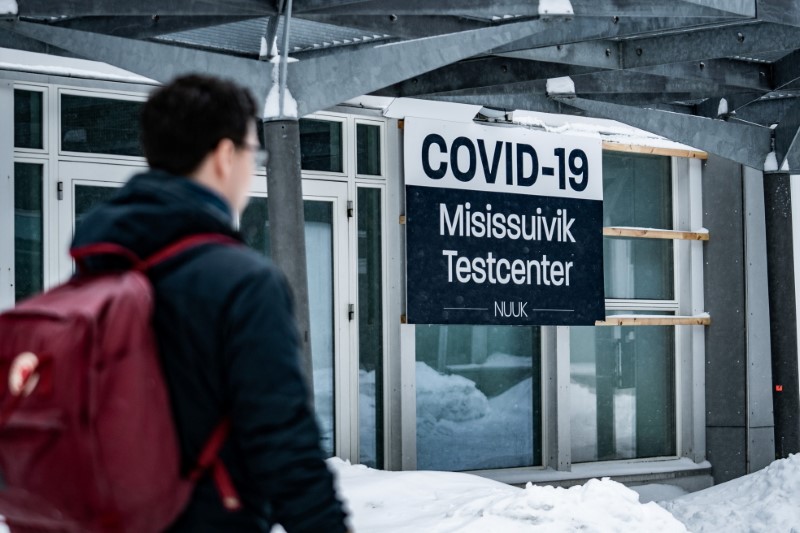Greenland must learn to live with COVID, public health officials say
“We no longer believe that we can keep Greenland totally free of COVID-19.”

Greenland can no longer shield itself from COVID-19 by following a strategy of containing outbreaks as they crop up, that country’s public health officials have said. Instead, in a shift in strategy, they now say residents must prepare themselves for a more persistent presence of the virus.
“The emergence of the variants means that we no longer believe that we can keep Greenland totally free of COVID-19,” Henrik L. Hansen, the chief medical officer, said on Monday. “Unless we seal off our borders entirely, people are going to carry the virus into the country with them.”
Since the start of the pandemic, Greenland has seen several minor outbreaks that, prior to the most recent wave of infections, had resulted in 51 cases of COVID-19, all of which have recovered. Since July 12, however, the number of cases has swollen and now stands at 81.
The new cases have been linked to three travelers who are suspected of unwittingly spreading the delta variant of the novel coronavirus to fellow passengers aboard their flight from Denmark and as they travelled to their final destinations in Greenland.
[Travel restrictions imposed on Nuuk over COVID outbreak are lifted]
Public health officials have managed to keep rates of infection in Greenland low by using various measures, such as as temporary border closures and quarantines for anyone arriving from abroad. Although the border remains open during the current outbreak, Greenland’s government announced on Monday that only those who had been vaccinated would be permitted to travel aboard Air Greenland planes or use public transit.
While the status of outbreaks in Sisimiut and Qaqortoq that had led to those two towns being sealed off was now looking “optimistic,” according to Hansen, the situation in Nuuk, where there are now 10 known active cases, had deteriorated and the city was now seeing “uncontrolled” spreading of the coronavirus.
Even so, a full lockdown was unlikely to be implemented.
“We’re in a much different situation now than we were in a year and a half ago,” he said. “Most of the people who are at the highest risk of serious illness have been vaccinated. If we lock down, there are a lot things that will stop functioning and it would have a number of serious consequences for people’s physical health if the health service is no longer functioning as it should, and people’s mental health will suffer.”
[Greenland is taking a long-term approach to battling COVID-19]
One key concern for public health officials is preventing outbreaks in Greenland’s isolated hamlets. Many hamlet residents received their first jab as part of an effort to offer the vaccine in all of Greenland’s populated places. Although vaccination rates were as high as 90 percent, the government has decided that to shift its strategy and concentrate on vaccinating people in Nuuk and Greenland’s largest towns before before offering a second jab to hamlet residents.
“Vaccinating all the hamlets required a huge amount of resources,” Hansen said. “The task right now is to vaccinate as many people as possible. Any outbreak is going start in a town before it spreads to a hamlet. So, our focus right now is to prevent a major outbreak, since that will keep people further away from getting it.”
So far, Greenland has used only the Moderna vaccine in its vaccination program. The choice was made because Moderna can be stored at a higher temperature and is easier to administer than the Pfizer/BioNTech vaccine. That has made it possible for local health care workers to provide people with vaccinations.
But because the Moderna vaccine has not yet been approved for use by anyone under 18, Greenland will need to acquire Pfizer/BioNTech vaccines and dispatch teams of healthcare workers from Nuuk to administer them, which will slow completion of the vaccination program, Hansen said.